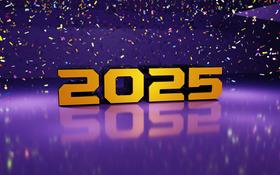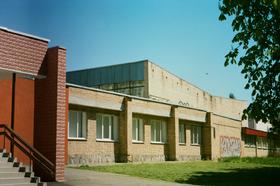Big Lake High School is a four-year public high school located in Big Lake, Minnesota. As of 2022, 951 students in grades 9-12 are enrolled. The school's principal is Robert Dockendorf and the assistant principal is Shallyn Tordeur.
Snw - Big Lake High School Transitions serves 29 students in grades 9-12.
Minority enrollment is 21% of the student body (majority Hispanic), which is lower than the Minnesota state average of 39% (majority Black and Hispanic).
Quick Facts (2025-26)
- School Type: Special education school
- Grades: 9-12
- Enrollment: 29 students
- Minority Enrollment: 21%
- Source: National Center for Education Statistics (NCES), MN Dept. of Education
Top Rankings
Snw - Big Lake High School Transitions ranks among the top 20% of public schools in Minnesota for:
Category
Attribute
Community Size
School Overview
Snw - Big Lake High School Transitions's student population of 29 students has grown by 45% over five school years.
School Type
Grades Offered
Grades 9-12
(No virtual instruction)
(No virtual instruction)
Total Students
29 students
Gender %
Total Classroom Teachers
n/a
Year Founded
1917
Colors
Blue, Gold
School Rankings
The diversity score of Snw - Big Lake High School Transitions is 0.37, which is less than the diversity score at state average of 0.59. The school's diversity has stayed relatively flat over five school years.
Student-Teacher Ratio
n/a
13:1
American Indian
4%
2%
Asian
4%
7%
Hispanic
10%
12%
Black
n/a
12%
White
79%
61%
Hawaiian
n/a
n/a
Two or more races
3%
6%
All Ethnic Groups
Eligible for Free Lunch
17%
36%
Eligible for Reduced Lunch
7%
7%
School Statewide Testing
School District Name
Source: National Center for Education Statistics (NCES), MN Dept. of Education
School Notes
- School Mascot: Buzz The Hornet
Profile last updated: 02/09/2025
Frequently Asked Questions
How many students attend Snw - Big Lake High School Transitions?
29 students attend Snw - Big Lake High School Transitions.
What is the racial composition of the student body?
79% of Snw - Big Lake High School Transitions students are White, 10% of students are Hispanic, 4% of students are American Indian, 4% of students are Asian, and 3% of students are Two or more races.
What grades does Snw - Big Lake High School Transitions offer ?
Snw - Big Lake High School Transitions offers enrollment in grades 9-12 (No virtual instruction).
What school district is Snw - Big Lake High School Transitions part of?
Snw - Big Lake High School Transitions is part of Sherburne And Northern Wright Speci School District.
School Reviews
Review Snw - Big Lake High School Transitions. Reviews should be a few sentences in length. Please include any comments on:
- Quality of academic programs, teachers, and facilities
- Availability of music, art, sports and other extracurricular activities
Recent Articles

Texas Schools Enrollment Trends & Policy in 2025
Latest data and policy changes on Texas public school enrollment growth, funding, and virtual education in 2025.

Financial Aid & Hidden Costs in ║┌┴¤═°╣┘═° Schools
Learn about financial aid and hidden costs in public schools. Discover what parents should budget for beyond tuition-free education.

NYC Schools Still Most Segregated in 2025
Despite reforms, New York City schools remain the most segregated in the U.S. in 2025. HereÔÇÖs what parents and educators need to know.





